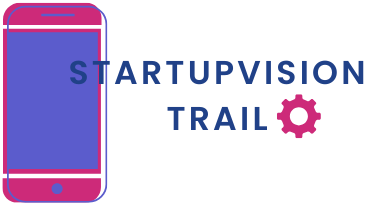Table of Contents
ToggleIn today’s fast-paced digital landscape, business applications play a crucial role in driving efficiency and innovation. Organizations of all sizes leverage these tools to streamline operations, enhance collaboration, and improve customer experiences. From project management software to customer relationship management systems, the right application can transform how a business functions.
As companies navigate the complexities of modern markets, understanding the landscape of business applications becomes essential. These solutions not only optimize workflows but also provide valuable insights through data analytics. By harnessing the power of technology, businesses can stay competitive and agile in an ever-evolving environment.
Overview of Business Applications
Business applications are software solutions designed to facilitate operations across various organizational functions. These applications streamline processes, enhance productivity, and support decision-making through data analysis.
Types of Business Applications
- Customer Relationship Management (CRM) Systems
CRM systems manage interactions with customers, track sales leads, and analyze data. Examples include Salesforce and HubSpot, which provide insights into customer behaviors.
- Project Management Tools
Project management tools, such as Asana and Trello, help teams manage tasks, timelines, and resources efficiently. These tools promote collaboration and ensure project deadlines are met.
- Enterprise Resource Planning (ERP) Systems
ERP systems integrate core business processes into a unified system. Solutions like SAP and Oracle streamline finance, supply chain, and HR management, enhancing overall efficiency.
- Accounting Software
Accounting software, such as QuickBooks and Xero, simplifies financial management tasks. These applications automate invoicing, payroll, and reporting, reducing manual input errors.
- Human Resource Management (HRM) Systems
HRM systems manage employee records, recruitment, and performance evaluations. Tools like Workday and BambooHR centralize employee data and improve HR processes.
Benefits of Business Applications
- Increased Efficiency
Business applications automate repetitive tasks, reducing human error and saving time.
- Improved Collaboration
Teams can share information and collaborate in real time, enhancing communication and productivity.
- Data-Driven Insights
These applications provide analytics and reporting features, enabling data-driven decision-making. Organizations can analyze trends and performance metrics to optimize operations.
- Scalability
Business applications can scale with organizational growth. As needs change, these tools adapt to accommodate evolving requirements.
Key Trends in Business Applications
- Cloud Computing
Cloud-based business applications enable remote access and reduce infrastructure costs. Popular options include Microsoft 365 and Google Workspace.
- Artificial Intelligence (AI) Integration
AI enhances business applications by providing predictive analytics and automation. Tools are evolving to offer smarter features that adapt to user needs.
- Mobile Functionality
Mobile applications allow employees to access business tools on the go. This flexibility supports remote work and improves response times.
Business applications serve as a backbone for modern organizations, driving innovation and operational excellence across industries.
Types of Business Applications

Business applications encompass a variety of software tools that facilitate multiple processes across organizations. The following sections detail key types of business applications in use today.
Enterprise Resource Planning (ERP)
ERP systems integrate core business processes, providing a unified platform for managing data across an organization. They streamline operations such as finance, procurement, inventory management, and human resources. ERP systems enhance visibility and reporting by offering centralized data analytics. Popular ERP systems include SAP ERP, Oracle NetSuite, and Microsoft Dynamics 365.
Customer Relationship Management (CRM)
CRM systems focus on managing customer interactions and relationships. They enable businesses to store customer information, track sales leads, and analyze customer behavior. Utilizing CRM tools improves customer satisfaction by enabling personalized communication and timely responses to inquiries. Notable CRM platforms include Salesforce, HubSpot, and Zoho CRM.
Supply Chain Management (SCM)
SCM applications optimize the flow of goods and services from suppliers to customers. They manage supply chain planning, procurement, logistics, and inventory management. SCM systems enhance efficiency by providing real-time visibility into supply chain operations and facilitating collaboration among partners. Leading SCM solutions include Oracle SCM Cloud, SAP Integrated Business Planning, and JDA Software.
Benefits of Business Applications
Business applications offer numerous advantages that significantly enhance organizational performance. These tools streamline operations, foster collaboration, and provide valuable insights that drive strategic decisions.
Increased Efficiency
Business applications automate repetitive tasks, reducing human error and saving time. For example, CRM systems automate customer follow-ups, while project management tools streamline task assignments. This automation leads to faster completion of projects and allows employees to focus on higher-value tasks. The result is heightened productivity across departments.
Enhanced Collaboration
Business applications improve communication by providing shared platforms for team members. Tools like project management software allow real-time updates and feedback, ensuring everyone remains aligned. Enhanced visibility of project statuses fosters accountability and encourages teamwork. Effective collaboration boosts morale and creates a unified work environment.
Improved Decision Making
Business applications aggregate and analyze data, delivering actionable insights that support informed decisions. For instance, ERP systems provide comprehensive reports on financials and operations, enabling executives to identify trends and areas for improvement. Access to real-time data empowers employees to make timely choices, ultimately increasing the agility of the organization.
Challenges in Implementing Business Applications
Implementing business applications presents several challenges organizations must navigate to maximize their benefits. Two prominent challenges are resistance to change and integration issues.
Resistance to Change
Resistance to change often emerges when employees feel uncertain about new systems. Employees may worry about job security, performance expectations, or adapting to unfamiliar processes. To address this resistance, organizations should involve employees early in the implementation process. Providing training sessions and resources fosters a positive mindset and encourages acceptance of new tools. Clear communication regarding benefits—such as increased efficiency, job support, and streamlined workflows—further alleviates concerns and promotes a smoother transition.
Integration Issues
Integration issues commonly arise when trying to connect new applications with existing systems. Incompatibilities between platforms can lead to data silos, which hinder operational efficiency. Organizations should conduct thorough assessments of their current systems before implementation. Identifying necessary integrations and potential technical challenges allows businesses to develop clear strategies for addressing them. Furthermore, leveraging middleware or APIs can facilitate smoother connectivity, ensuring seamless data exchange between applications while maintaining data integrity.
Future Trends in Business Applications
Emerging technologies significantly shape the future of business applications. Artificial intelligence (AI) continues to enhance automation and decision-making capabilities. Businesses can expect improved predictive analytics that streamline operational efficiency by anticipating customer needs and market trends.
Cloud computing remains a dominant force, allowing organizations to access business applications anywhere. Flexibility in cloud services lets companies scale operations quickly and adapt to market changes without significant infrastructure costs.
Mobile-centric applications become essential as remote work and on-the-go operations increase. Users demand access to business tools through smartphones and tablets, requiring developers to create responsive, user-friendly platforms.
Integrating Internet of Things (IoT) technologies into business applications offers real-time data collection and analysis. Manufacturers and logistics businesses benefit from IoT-enabled applications that monitor asset conditions and optimize supply chains, thus improving productivity.
Blockchain technology is anticipated to enhance security and transparency in transactions. Businesses utilizing blockchain can ensure data integrity and traceability, fostering trust among customers and partners.
Companies increasingly lean toward no-code and low-code platforms that empower non-technical users to design and customize applications. These platforms enable faster development cycles, allowing businesses to respond quickly to evolving market demands.
Personalization remains crucial, with organizations leveraging data analytics for tailored user experiences. Business applications are evolving to provide individualized recommendations, enhancing customer satisfaction and loyalty.
Sustainability considerations are likely to shape business applications in the coming years. As environmental concerns rise, companies seek applications that support eco-friendly practices and monitor their carbon footprints.
Business applications are vital for navigating the complexities of today’s digital landscape. They empower organizations to enhance efficiency and foster collaboration while delivering exceptional customer experiences. As technology continues to evolve, businesses must stay ahead by embracing these tools to optimize workflows and drive innovation.
The integration of emerging technologies like AI and cloud computing will further transform how organizations operate. By understanding the unique needs of their teams and customers, businesses can leverage applications that not only streamline processes but also provide valuable insights for informed decision-making.
In an era where adaptability is key, investing in the right business applications is essential for sustained growth and success.





